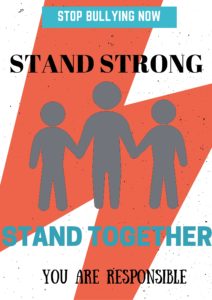Relational Bullying
Posted by Angela Leak at Friday, May 22, 2015 5:01:43 PM CDT
In the film “Bully” several children who are facing adversity from peers are featured. They are often targeted for being different, whether through physical appearance or gender identity. In the film school administrators are shown as putting forth no effort to stop the abuse. This is true of many schools in the nation. Educators either say “kids will be kids” and shrug it off as the harsh side effect of socialization, or make an effort, but an inefficient one. Relational bullying is a large part of what goes on inside schools and bus rides home. These are events that occur many times, the victim often seeing the perpetrator daily or several times a day. Lately the social justice approach has been taken to combat this, whether through rallies, school events or social media, the social justice method seems to be making an impact. However adolescent and teens are still being victimized, and suicide rates continue on an upward trend. Social justice aims to inform youth through programs designed to educate them of diversity, and those that are differently abled. Whether the point is being driven home or not remains to be seen. We can only continue to make a difference by continuing to inform students about the emotional impact of bullying.
telling stories, hearing lives
© 2024 Cultures of Engagement
Theme by Anders Noren — Up ↑


My group also caught that the administrators tried to shrug off the bullying and say there was a reason behind this. I will be interested in seeing how your group wishes to combat relational bullying. Angela Giannetto
I think that relational bullying, which tends to not be aggressive but rather a prolonged emotional attack on a person, was very well encapsulated in the case of Ja’Meya. Here we see the classic signs of relational aggression such as excluding Ja’Meya from the group and getting the other girls to hate her as well. There was no physical abuse of Ja’Meya but she was pushed so far she brought a gun to confront her bullies which shows just how effective relational aggression can be. I think social justice programs that aim to educate must emphasize on the fact that just stopping physical bullying isn’t enough, we must also try and provide an inclusive atmosphere that would nullify the existence of relational bullying. Darpan Mehta
Torina Gedler: Like the previously discussed post, I thought that this was written well and made good points; however, expansion on the claims through the use of examples would benefit its persuasive abilities.
Hannah Hennessey: This one talks a lot about peers or even friends. Sometimes I think bullies develop because their siblings pick on them and because of that they feel they need something they can overtake or be better than. Then that kid that gets bullied by his/her older siblings in-turn becomes a bully to children of his/her own age. Relational bullying also come from friends peer pressuring you into doing something you wouldn’t normally do. Kind of like in the Breakfast Club when the wrestler assaulted a kid in the locker room just because his dad would have done it and his friends were telling him to do it.
Ally Calvert: I really like how you showed us the stance from the administrator’s side; it shows what they did in these situations. I would like to know what relational bullying really is and how this relates more to the overall picture. I also agree with out on saying that we need to make it known to more students the outcomes of bullying and how to stop it. Good post.
Anna Burns: I think this blog post needs to explain more about what relational bullying is. I also think it would be beneficial if the author went more in depth with examples of relational bullying and her thoughts on a solution to this problem. I liked this blog post but it just needs to be more in depth with a better explanation of things.
Zachary Berman: It is important to educate children about the emotional impact of bullying because they might not see and relate to the effects of it otherwise like they can with a physical injury.
Lea Kozulic: Relational Bullying cannot be stopped easily and one of the good ways to try to stop it would be to ask each student how would they feel if they would be put in such situation? How would they feel if they were the ones who were bullied? The only way, unfortunately, that pops up in my mind is to keep raising awareness about the effects of relational bullying in schools.
Good post and comments. I would like to see you expand this to include more attention to what relational bullying is. How is it different from physical bullying and aggression? How is it similar? How does a social justice approach address this kind of verbal aggression? What might Pascoe’s insight about bullying as a practice of socialization suggest about how to combat relational bullying? What examples does she use that fall into this category? What are some modes of critical thinking about “difference” that might help prevent bullying?